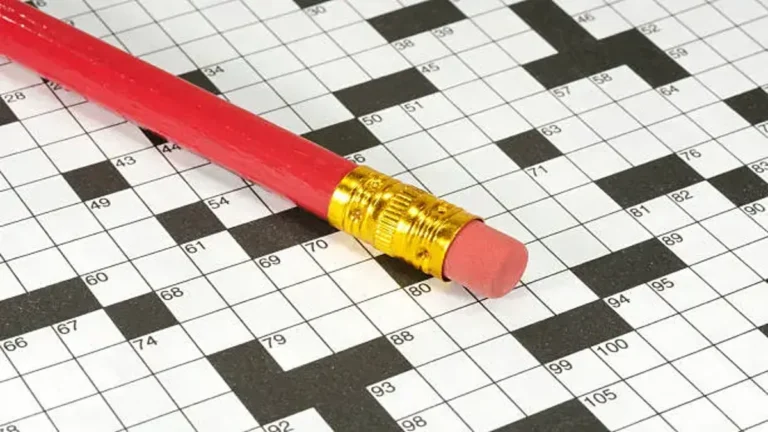The Dash Poem: Understanding the Meaning of a Life Between Two Dates
Life is often measured by numbers the year we are born and the year we die. Yet, somewhere between those two dates lies a small line, a dash so simple that it’s easy to overlook. But that dash, that tiny mark carved between our beginning and our end, carries the full story of who we were, how we lived, and what we left behind. The Dash poem by Linda Ellis has become a timeless piece of wisdom, reminding people that life is not about how long we live, but how deeply we live.
In this detailed exploration, we’ll dive into the essence of The Dash, uncovering its meaning, lessons, and emotional power. More than just a poem, The Dash is a mirror that asks us to pause and consider how we spend the precious time between our birth and our death the moments that define our humanity.
The Story Behind “The Dash”
In 1996, poet Linda Ellis wrote a short poem that would go on to inspire millions around the world. She called it “The Dash.” The poem was simple in language but profound in message. It spoke about a man giving a eulogy, describing the significance of the “dash” engraved between someone’s date of birth and death on a tombstone.
That single dash, she explained, represents every choice, every emotion, every success, and every mistake a person makes. It symbolizes a lifetime one filled with laughter, tears, growth, and love. The poem quickly spread across workplaces, churches, funerals, and classrooms, resonating with people from all walks of life. Its message transcends culture and religion. The Dash is not about wealth or fame; it is about meaning. It’s about how we use our time to impact others and live authentically.
What the Dash Truly Represents
When we think of the dash between two years, we might imagine it as just punctuation a tiny connector. But The Dash redefines that line as the essence of existence itself. It’s the bridge between what we can’t control birth and death and what we can how we live.
Here’s a closer look at what the dash symbolizes in a human context:
| Symbolic Meaning | Explanation | Example in Life |
| Time and Choices | The dash stands for how we use the limited time we are given. | Choosing to spend more time with loved ones rather than chasing constant work. |
| Legacy and Impact | It’s about the mark we leave on others’ hearts and lives. | A teacher’s kindness remembered decades later by a student. |
| Character and Growth | Our reactions, morals, and resilience shape who we are. | Choosing forgiveness over revenge. |
| Love and Connection | It reminds us that relationships are the true treasures of life. | Building deep friendships and family bonds. |
| Purpose and Meaning | It’s about finding fulfillment beyond material success. | Dedicating time to helping others or creating something meaningful. |
A Reflection on Time and Mortality
Time is the only thing we can never get back. In The Dash, Ellis captures this universal truth with gentle grace. The poem pushes us to ask hard questions:
Are we living each day with purpose? Do we express gratitude often enough? Do we let anger or regret consume moments that could have been filled with love?
We often get caught in the race of life chasing promotions, possessions, or popularity forgetting that each day brings us closer to our final date. But when we stand still for a moment and look at that “dash,” we see that the value of life lies not in how long it lasted but in how it was lived.
Why “The Dash” Resonates with So Many People
The poem’s enduring power lies in its simplicity. Anyone, from any culture, can understand it. Its message touches something universal our shared humanity. Whether someone reads it at a funeral, graduation, or during a moment of self-reflection, The Dash speaks the same truth: our time here is short, but it’s enough to create beauty.
People connect to The Dash because it gently reminds them that life’s meaning is not hidden in extraordinary events. It is woven into small acts the smile given to a stranger, the forgiveness offered to an enemy, or the laughter shared at dinner. In a world obsessed with speed and achievement, the poem feels like a deep breath a call to slow down and realign with what truly matters.
Living Your Dash: Turning the Poem into Action
Reading The Dash is one thing; living it is another. The real power of the poem emerges when we use its message to guide our actions. To “live your dash” means to take conscious steps toward creating a life that feels meaningful and kind.
1. Prioritize Relationships Over Possessions
The poem reminds us that material things fade, but love remains. Spend more time making memories with people you care about. A heartfelt conversation can outlast any luxury item.
2. Practice Gratitude Daily
Gratitude transforms our perspective. Instead of focusing on what’s missing, we begin to see abundance in simple things sunlight, laughter, or even quiet moments of reflection.
3. Choose Kindness and Forgiveness
Holding onto resentment only shortens our joy. The Dash teaches that forgiveness is not weakness but strength a conscious decision to free ourselves and others from pain.
4. Pursue Meaning, Not Just Success
True success lies in how you touch others’ lives. Whether it’s helping a neighbor, mentoring someone, or creating art, every act of kindness adds value to your dash.
5. Be Present
The poem’s message emphasizes being fully alive in each moment. Instead of waiting for the “perfect time,” live now. Happiness isn’t a destination; it’s found in the journey.
The Emotional Depth of The Dash
There’s a quiet beauty in The Dash it’s neither preachy nor complex. It feels like a heartfelt conversation between souls. Each line gently reminds us that our choices, attitudes, and actions define who we are.
It’s easy to see why the poem is often read at memorial services or funerals. In those moments, it gives comfort a reminder that though someone’s time has ended, their dash continues to inspire through the lives they touched. At the same time, it is equally powerful for those still living. It’s a wake-up call not to fear death, but to live fully before it arrives.
The Dash and Modern Life
In today’s fast-paced, digital world, we’re constantly pulled in a thousand directions. Notifications, deadlines, and distractions fill our days. Many people feel disconnected from the deeper purpose of life. The Dash offers an antidote to that chaos.
It teaches mindfulness without ever mentioning the word. When we slow down and think about how we’re using our time, we start to make better decisions. We stop living reactively and begin to live intentionally. Imagine if everyone made choices with their “dash” in mind how different our world would look. We would prioritize empathy over ego, compassion over conflict, and purpose over profit.
The Dash as a Moral Compass
Philosophers and poets throughout history have asked what gives life meaning. The Dash answers that question in a language everyone can understand. It suggests that morality isn’t about rules it’s about relationships and responsibility.
Living your dash well means aligning your actions with your values. It’s about integrity when no one’s watching, kindness when it’s inconvenient, and humility when life tempts us toward pride. We all make mistakes, but what matters is how we grow from them. The dash is not meant to be perfect; it’s meant to be honest and full of heart.
Lessons from “The Dash” for Every Stage of Life
| Life Stage | How “The Dash” Applies | Key Takeaway |
| Youth | Encourages building good habits early — empathy, honesty, curiosity. | Every choice shapes your future dash. |
| Adulthood | Reminds us to balance ambition with compassion. | Success means little without love and kindness. |
| Middle Age | Calls for reflection — reassessing priorities and relationships. | It’s never too late to rewrite your dash. |
| Old Age | Inspires gratitude and peace with life’s journey. | The dash may end, but its impact remains eternal. |
Each phase of life offers a chance to shape our dash differently. The wisdom of the poem grows with us, revealing new meaning as we change.
The Dash in Leadership and Community
Beyond personal growth, The Dash offers valuable lessons for leaders and communities. It suggests that leadership is not about control but service. A good leader’s dash is defined by the lives they uplift. In organizations, this mindset creates empathy-driven environments. Leaders who understand The Dash prioritize people, not just profits. They value authenticity, teamwork, and shared purpose qualities that inspire long-term success.
How “The Dash” Inspires Art, Reflection, and Healing
Artists, writers, and motivational speakers have drawn inspiration from The Dash for decades. It’s been used in music, sermons, and even therapy sessions because it encourages introspection without judgment. For those grieving, it offers comfort. For those lost in confusion, it provides clarity. For those chasing success, it offers balance. Its emotional universality makes it more than a poem — it’s a spiritual compass for modern life.
Rewriting Your Own Dash
One of the most empowering messages from The Dash is that it’s never too late to start over. Every day gives us a chance to rewrite part of our story. You can mend relationships, pursue new dreams, or learn to forgive yourself. The dash is flexible it grows with your choices. Even when life feels uncertain, the power to shape your story remains in your hands.
The Timeless Legacy of “The Dash”
Decades after its publication, The Dash continues to inspire millions. Its endurance proves that human beings crave meaning more than material success. The poem will remain relevant as long as we continue to search for purpose in an ever-changing world. Its message is timeless because it doesn’t tell us what to do it reminds us why we should do it: to live with compassion, gratitude, and purpose.
Final Reflection: Living the Dash with Intention
At its heart, The Dash is a call to live consciously. It reminds us that every moment good or bad contributes to the masterpiece of our lives. The years carved into stone may define when we lived, but the dash defines how we lived. When we finally leave this world, our possessions will fade, but our kindness, love, and integrity will remain in the memories of others. That’s the true legacy of the dash.
So today, take a moment to reflect. Ask yourself:
If my life were represented by a dash, what would it say about me?
Would it speak of kindness, passion, and courage or of things left undone?
The answer doesn’t lie in the past or the future it lies in what you choose to do now. Because every heartbeat, every breath, every act of love becomes part of that simple yet powerful line your dash.




